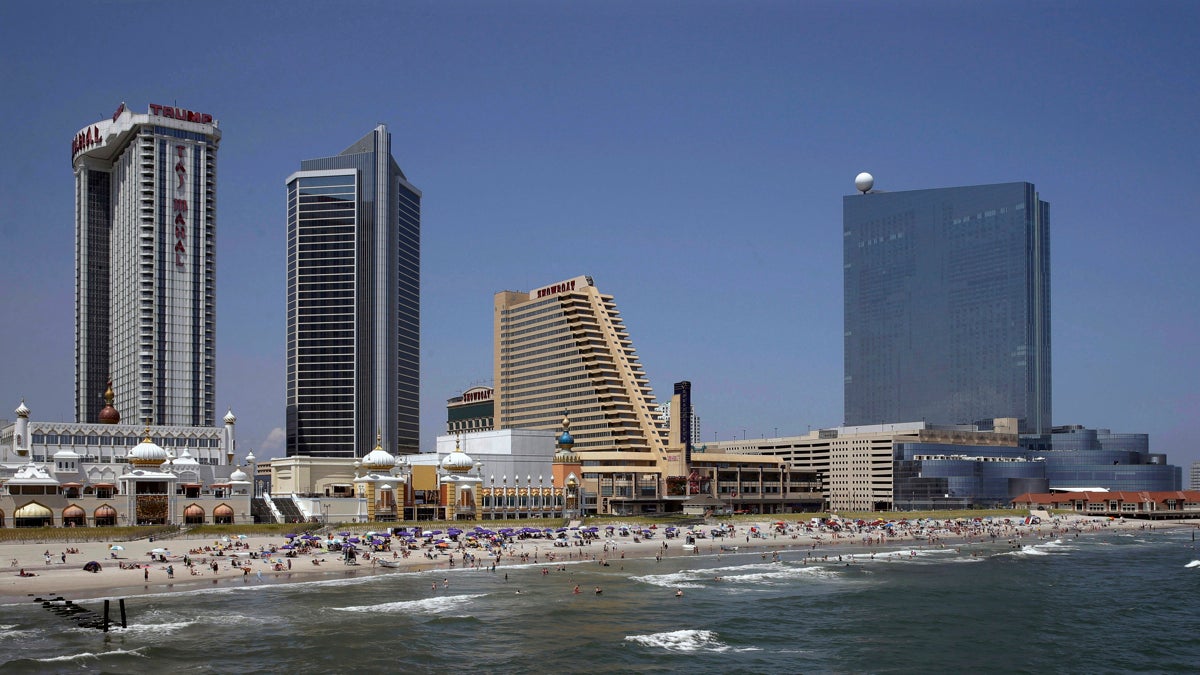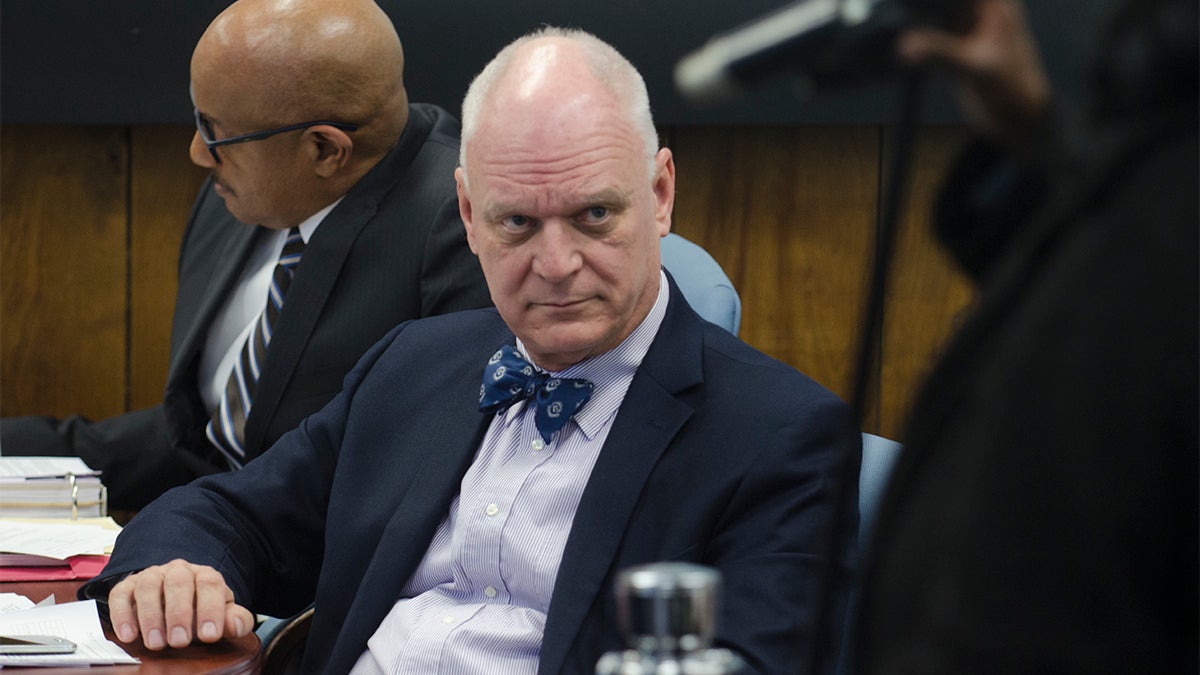What’s happened since New Jersey took over Atlantic City in November?
Listen
Four months into New Jersey's takeover of Atlantic City,the state is starting to make some changes. (AP Photo/Mel Evans, file)
Stand in Mayor Don Guardian’s corner office on the seventh floor of City Hall, and the signs of Atlantic City’s money troubles are all around you.
Out the window, you can see three of the five casinos that closed in the last few years due to profit loss.
A few floors beneath your feet are the state officials currently in charge of Atlantic City government.
And across the street sits the county courthouse, where a judge recently ruled that the state could tear up the city’s firefighters contract to cut their pay and benefits.
“I don’t know easy days,” said Guardian. “I only know crises.”
But lately Guardian is less an active participant in the city’s financial crisis than a spectator.
In November, the administration of Gov. Chris Christie took control of Atlantic City government, which had been staring down a casino crisis, a declining tax base, and a massive budget hole.
With the state takeover now in full bore, here are a few developments that have happened in the resort town over the last four months:
Police and fire cuts
State officials announced cuts to the fire department in December and vowed similar budget-slashing measures for the police department in March.
The proposal included salary cuts, the elimination of payouts for unused sick time, and a different health plan. One hundred firefighters and 24 cops would be laid off.
When the firefighters union sued to block the cuts, Judge Julio Mendez put the layoffs on hold but said all other cuts could proceed until trial. The police union also filed suit.
Jeff Chiesa, the man the Christie administration put in charge of Atlantic City, called the lawsuits “simple money grabs” on WPG talk radio. (The state did not make Chiesa available for an interview for this story.)
“They have nothing to do with public safety,” said Chiesa, who claimed the cuts would save the city millions of dollars. “This is an effort to protect high salaries.”
 Atlantic City Mayor Don Guardian says things have only gotten worse since the state takeover. (Anthony Smedile for NewsWorks)
Atlantic City Mayor Don Guardian says things have only gotten worse since the state takeover. (Anthony Smedile for NewsWorks)
Public worker unions, however, have said the cuts would pose a risk to public safety. They also criticized Chiesa, whom media reports said has billed $80,000 for his first three months of work, for calling the police and fire unions greedy.
“We’re partners with the city. We’re partners with the community, the businesses, and everyone else who has a stake in Atlantic City,” said police union president Matt Rogers. “We don’t come from [Trenton] just to take from Atlantic City and go back up north before the close of business.”
Borgata tax appeal settlement
In February, the state reached a settlement on a longstanding tax appeal by the Borgata, netting the casino $72 million, less than half of what it was owed by the city.
It closed the book on what had been one of the largest issues for the city and eliminated a major question mark in the municipal budget.
The casino also agreed to start making its PILOT or “payment in lieu of taxes” payments to the city, which it had been withholding during the course of the tax appeal.
Shuttered casinos find buyers
Two of the five casinos that closed in Atlantic City in the last few years found new buyers on Chiesa’s watch.
Hard Rock International, the Florida-based restaurant and hotel company, bought the former Trump Taj Mahal just four months after owner Carl Icahn closed it during a worker strike.
And the shuttered Atlantic Club was purchased by Ventnor-based R&R Development Group, which plans to turn the former casino and hotel into a large indoor water park, according to the Press of Atlantic City.
Credit upgrade
After a slew of credit downgrades for the struggling gambling town, Atlantic City finally saw its credit rating notch upward.
Earlier this month, Standard & Poor’s increased the city’s bond rating from CCC- to CC but said that the outlook for Atlantic City is still negative.
Christie praised the state’s efforts after the Hard Rock purchase and the credit-rating announcement. “These are early signs our efforts are working,” said Christie in a statement, “that we will successfully revitalize Atlantic City and restore the luster of this jewel on the Jersey Shore.”
What’s next?
This year’s election in New Jersey could have major repercussions for Atlantic City.
Guardian, a Republican, is up for re-election this year. At least two of his Democratic opponents are City Council members who have worked with him during the city’s financial struggles and the state takeover.
The two-term Christie cannot run for governor again, and the race to succeed him has already heated up. Democratic and Republican gubernatorial candidates have vowed to do away with the state takeover if elected.
One issue expected to arise in the meantime is what to do with Atlantic City’s water utility.
Christie and state officials have floated the idea of selling or privatizing the water department to make the city some money, but city officials have resisted giving up local control, fearing that prices could rise and water quality could plummet.
The takeover law stipulated that Atlantic City’s water utility could not be “monetized” for at least one year, but that grace period ends in May.
WHYY is your source for fact-based, in-depth journalism and information. As a nonprofit organization, we rely on financial support from readers like you. Please give today.




